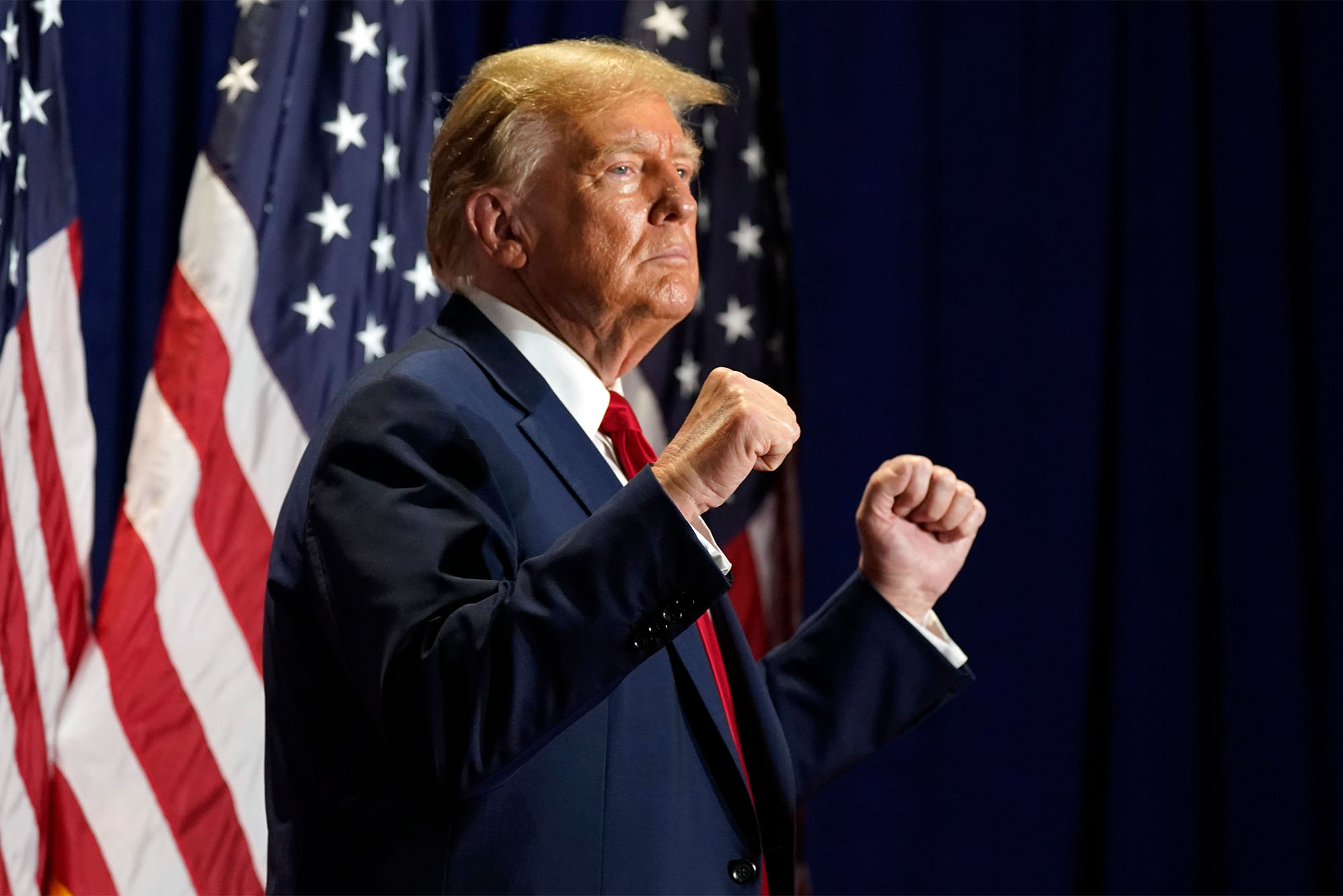In a Win for Trump, Supreme Court Rules That Former President Can Remain on the Ballot

The Supreme Court ruled on Monday, the day before the 2024 Super Tuesday primaries, that states cannot invoke a post–Civil War constitutional provision to keep presidential candidates from appearing on ballots. Photo via AP/Steve Helber
In a Win for Trump, Supreme Court Rules That Former President Can Remain on the Ballot
Justices said that states cannot use a Civil War–era Constitutional provision to bar candidates from federal office, taking pains to broadcast its unanimity, LAW’s Jack Beermann says
Republican front-runner Donald Trump will appear on primary ballots in Colorado on Super Tuesday, after a Supreme Court ruling that rejected a challenge to his eligibility and could have had drastic ripple effects across the country.
“I was very honored by a nine-to-nothing vote,” Trump said on the Howie Carr Show, a conservative radio talk show based in Boston, following the ruling. “And this is for future presidents. This is not for me. This is for future presidents, all presidents. But this was a very big decision. It was a great decision.”
In the unanimous opinion, announced Monday morning, justices agreed that states do not have the power to bar candidates for a federal election under a Constitutional provision that makes insurrectionists ineligible for the office. They stopped short, however, of deciding whether the attack on the US Capitol on January 6 was indeed an insurrection—and what, if any, role Trump played in the events.
The case arose from a group of Colorado voters who sought to disqualify Trump from the state’s Republican primary—being held this Tuesday, March 5—based on Section 3 of the 14th Amendment, a Civil War–era Constitutional provision that bars insurrectionists from holding federal office.
“What is clear is that it was very important for the court that this be a unanimous decision,” says Jack Beermann, the Philip S. Beck Professor of Law at Boston University’s School of Law.
The justices “decided that states can’t enforce Section 3 of the 14th Amendment against presidential candidates, and they made it very clear that only the federal government has the power to decide whether a candidate for president is disqualified from serving as president—or for any federal office,” Beermann says.
Section 3 of the 14th Amendment provides that no one “shall be a Senator or Representative in Congress, or elector of President and Vice President, or hold any office, civil or military, under the United States, or under any State,” if that person had previously sworn, “as a member of Congress, or as an officer of the United States” to support the US Constitution, but then “engaged in insurrection or rebellion” against the federal government.
In Monday’s unsigned opinion, all nine justices agreed that states cannot enforce that provision against candidates for a federal office. Four of the justices—Amy Coney Barrett, Elena Kagan, Sonia Sotomayor, and Ketanji Brown Jackson—would have left the decision at that, and filed concurring opinions saying as much, Beermann notes.
But the remaining five justices, writing in the majority opinion, go further. They outline a path that Congress must take if it is to enforce the Constitutional provision in question.
It’s not totally clear why the majority goes further, Beermann says. They may have been explaining their theory of the case, or perhaps trying to head off similar challenges in the future.
The justices go to great lengths to clarify that this is a united decision, writing: “All nine Members of the Court agree with that result. Our colleagues writing separately further agree with many of the reasons this opinion provides for reaching it.”
“The court is under a lot of pressure right now,” Beermann says. It has to make decisions in a set of highly charged elections-related cases during a time when trust in the Supreme Court as an institution is hovering at record lows. Monday’s decision is the biggest the court has made in any election-related case since its controversial ruling in Bush v. Gore, in 2000. And it still has another big case on its docket involving a presidential candidate: the justices said last week that the court would decide whether Trump is immune from prosecution for his role in the January 6 attack.
So, its decision to sidestep the weightiest questions in this case—whether January 6 was an insurrection and what Trump’s role was in the events—was probably a wise one, Beermann says. If they had opined on the substance of those issues, “I think the criticism would have been very similar to what we saw after Bush v. Gore, which was that the court would have been going out on a limb to decide an election,” Beermann says. “I think there would have been an eruption of opposition. As it is, and despite the criticisms in the concurring opinions, the case was decided very narrowly.”

Comments & Discussion
Boston University moderates comments to facilitate an informed, substantive, civil conversation. Abusive, profane, self-promotional, misleading, incoherent or off-topic comments will be rejected. Moderators are staffed during regular business hours (EST) and can only accept comments written in English. Statistics or facts must include a citation or a link to the citation.